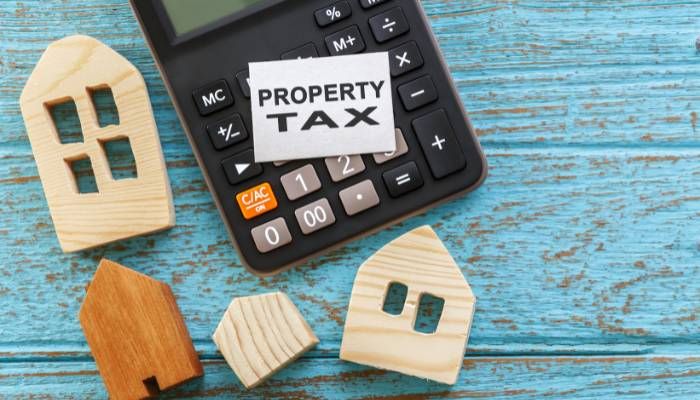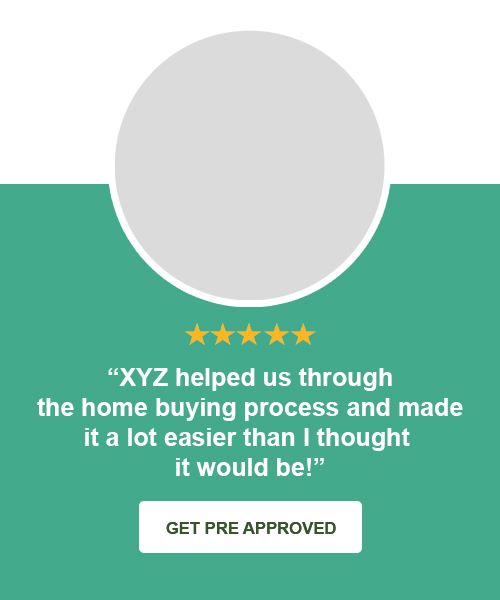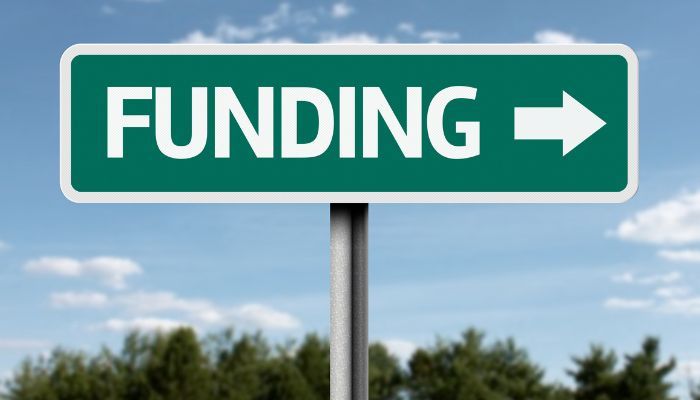
The impact of property taxes and homeowner’s insurance on home loan affordability
Jump To
Purchasing a home is like jumping onto a never-ending rollercoaster ride. It’s full of thrilling highs, unexpected dips and turns, and more than a few moments of sheer terror. One of the most daunting aspects of this journey is navigating the complex world of property taxes and homeowner’s insurance – two major factors that can determine whether or not you can afford your mortgage. In this article, we’ll examine the impact these two elements have on home loan affordability so that you can make the best decisions for your financial future.
Property taxes and homeowner’s insurance are both essential ingredients in the recipe for homeownership success. Property taxes can vary widely from state to state, as well as within counties and cities, making it difficult to get an accurate estimate when planning to purchase a new home. Homeowner’s insurance premiums also need to be taken into account when calculating loan affordability – a factor that is often overlooked by many hopeful buyers.
The good news is that understanding how property taxes and homeowner’s insurance affect loan affordability isn’t rocket science – it just takes some careful research and strategic planning. By taking the time to learn how these two elements interact with one another, potential homeowners can ensure they’re making informed decisions about their finances before signing on the dotted line.
Overview Of Property Tax & Homeowner’s Insurance
When considering home loan affordability, it’s easy to focus on the down payment and monthly mortgage. But the long-term costs of homeownership go far beyond the mortgage itself. Property taxes and homeowner’s insurance are two crucial components that can significantly affect your finances over time. It’s essential to understand both of these expenses before you take out a home loan.
Now, I know what you’re thinking: these are just extra costs that need to be factored into my budget. However, this isn’t necessarily true. In some cases, property tax and homeowners insurance can actually be used as leverage in negotiations with lenders or sellers. Understanding how they work is an important factor in getting the best deal for your home loan.
Property taxes and homeowner’s insurance both have their own unique considerations that must be taken into account when looking at the overall cost of home ownership. Let’s take a closer look at each one now to better understand their impact on home loan affordability…
Property Tax Considerations
Property taxes can be a tricky beast to untangle. It’s like this never-ending story, where you think you know the ending but then realize there’s one more chapter that needs to be read. To make it easier to understand, let me tell you a metaphor. Imagine property taxes as a tower of books that stand tall and strong on the shelf of your home loan affordability. Each book is a different tax contribution, and the height of the tower indicates how much you need to pay.
Now, let’s take a closer look at what those books represent:
- Property assessments: These are conducted by local governments who evaluate your property value and decide how much tax you owe based on that assessment.
- Tax rate: This is usually set by the city or county government and it is used to calculate your total tax bill for the year.
- State income tax deductions: Some states allow homeowners to deduct their property taxes from their income tax return, which can reduce their overall tax burden in some cases.
- Tax credits: Certain states offer credits for homeowners who meet certain criteria such as being elderly or disabled, which can also help reduce their overall tax burden.
Understanding what each book represents helps us get closer to understanding exactly how property taxes impact our home loan affordability. However, there’s still another factor we need to consider when discussing how these taxes affect our ability to purchase a home – homeowner’s insurance considerations. Let’s dive into this next!
Homeowner’s Insurance Considerations
As it turns out, homeowner’s insurance is just as important as property taxes when it comes to home loan affordability. Homeowner’s insurance provides protection for your home, belongings, and yourself in case of damage from storms, fires, and other disasters. It can also provide coverage for things like liability if someone gets injured on your property. Without this coverage in place, you could be left with considerable costs that could put a major dent in your budget.
In addition to providing peace of mind, homeowner’s insurance can also have an impact on the interest rate you may be able to get on a home loan. Some lenders may require a certain level of coverage before offering you the best rates. This means that having adequate coverage could make a difference in the amount of money you end up paying over the life of the loan.
It’s important to do your research and find an insurance policy that fits both your needs and budget. With the right coverage in place, you can protect yourself from unexpected events while potentially saving money on your home loan at the same time. Knowing how property taxes and homeowner’s insurance affect home loan affordability can help ensure that you make informed decisions about purchasing or refinancing your dream home.
Effect Of Property Taxes & Homeowner’s Insurance On Home Loan Affordability
When it comes to understanding home loan affordability, property taxes and homeowner’s insurance play an important role. Both of these costs need to be taken into consideration when budgeting for a mortgage. In this section, we’ll discuss how they affect home loan affordability.
Property taxes are assessed annually by local governments to help fund community services. Homeowners pay the tax based on the value of their property in the form of a lump sum or installment payments throughout the year. Homeowner’s insurance is another cost that must be taken into consideration when budgeting for a mortgage, as it protects against any potential damage to your home, including weather-related damage or theft. It also provides liability coverage in case someone is injured while on your property.
Property taxes and homeowner’s insurance can both have a significant impact on your ability to afford a home loan. The amount you have left over after paying these costs will determine how much you can borrow for your loan. Therefore, it’s important to plan ahead and understand exactly how much these expenses will cost each month before applying for a mortgage loan. Understanding property tax assessments is essential to getting an accurate estimate of what you can expect to pay each month in property taxes and homeowners insurance.
Understanding Property Tax Assessments
As we enter the fifth step in understanding property tax assessments, it’s like we’re walking through a minefield. It can be tricky to navigate the ever-changing terrain of taxation and insurance. That said, staying informed about these matters is pivotal for anyone seeking an affordable home loan.
Property taxes are levied by local governments and are based on the assessed value of your home. These assessments usually consider factors such as size, age, and surrounding area. Depending on where you live, there may be exemptions available that help lower your tax bill. Homeowner’s insurance comes in many forms and covers everything from natural disasters to vandalism. When shopping for a policy, it’s best to compare options for coverage levels and costs; this is essential for finding the best deal on insurance so that you remain financially secure while keeping your loan payments down.
Having a thorough knowledge of both property taxes and homeowner’s insurance is key when it comes to achieving home loan affordability. Ahead, we’ll look at strategies to reduce property taxes so that you can make sure you’re getting the most bang for your buck!
Strategies To Reduce Property Taxes
It’s no secret that property taxes can be one of the most expensive costs associated with owning a home. Luckily, there are a few strategies to help you reduce your property taxes and make home loan affordability much more achievable.
First of all, it’s important to understand the assessment process in order to know how your property taxes are calculated. This includes researching local tax rates and understanding how they affect your particular property. Knowing this information can help you plan ahead and take steps to lower your tax burden.
Here are some strategies you can use to lower your property taxes:
- Appeal assessment: You may be able to appeal an assessment if you think the value is too high or if there are any errors.
- Tax exemptions: Depending on where you live, certain types of properties may qualify for tax exemptions such as those for seniors or veterans.
- Negotiate payment plans: Some municipalities offer payment options, like installment plans or discounts for early payments, which could help reduce the amount due.
- Establish a homestead exemption: This type of exemption may be available in some states and can provide substantial savings on property taxes.
These strategies can help reduce your overall tax bill and make it easier to manage monthly payments while still keeping up with other expenses related to owning a home. Next, let’s look at understanding homeowner’s insurance coverage and how it impacts loan affordability.
Understanding Homeowner’s Insurance Coverage
Well, it seems like we’re on to the next step in understanding the impact of property taxes and homeowner’s insurance on home loan affordability. It’s time to get a better handle on homeowner’s insurance coverage.
It’s important to have a good grasp on this topic since without proper coverage, you can find yourself in hot water if something were to happen. That’s why it pays off to take your time when researching what type of policy is best for you.
To get started, it’s worth considering the risks associated with owning a home. Idiomatically speaking, you don’t want to put all your eggs in one basket and leave yourself exposed to potential liabilities. You should be aware of natural disasters that could impact your area and what kind of coverage is available for them if they do occur. Furthermore, you’ll want to consider any other accidents or incidents that may come up which would require additional coverage.
Now that we’ve gone over the importance of having adequate insurance, let’s dive into how we can reduce the costs associated with getting it.
How To Reduce Homeowner’s Insurance Rates
When it comes to owning a home, most of us don’t think of the extra costs that come with it; such as homeowner’s insurance. Homeowner’s insurance is an important part of protecting our homes and our possessions in the event of an accident or natural disaster. But when it comes to the cost of owning a home, it can be hard to keep up with all the additional fees. That’s why understanding how to reduce your homeowner’s insurance rates is so important.
There are many ways to reduce your homeowner’s insurance rates, but here are four key steps:
- Increase your deductible – raising your deductible can significantly lower your premiums
- Research discounts – ask about discounts for things like installing smoke detectors or burglar alarms
- Bundle policies – bundling home and auto insurance policies together may offer discounted rates
- Shop around for quotes – compare multiple quotes from different insurers to find the best rate for you.
Taking these steps will help you save money on your homeowner’s insurance premiums, which can go a long way toward making homeownership more affordable. Now that we understand how to reduce homeowner’s insurance rates, let’s take a look at the impacts of property taxes & homeowner’s insurance on mortgage rates.
Impacts Of Property Taxes & Homeowner’s Insurance On Mortgage Rates
“Make hay while the sun shines” is an adage that holds true for reducing homeowner’s insurance rates. To ensure you get the best deal on your mortgage, it’s important to consider the impacts of property taxes and homeowner’s insurance on mortgage rates. Remember, if you can reduce one or both of these components, you might be able to save a considerable amount on your loan repayments.
Here are five ways to bring down your homeowner’s insurance rates:
- Increase the deductible – The higher the deductible, the lower your premium will be.
- Shop around – Different companies offer different deals so make sure you compare different policies before purchasing one.
- Bundle and save – Bundling your home and auto insurance with the same company could result in discounted premiums for both policies.
- Improve security features – Installing deadbolts or other security features may help lower your premium as it lowers the risk of theft or vandalism.
- Home improvements – Adding new features such as a new roof may help reduce costs over time due to improved safety and energy efficiency ratings.
Considering all these factors can lead to savings in both property taxes and homeowner’s insurance, making it easier for you to manage your mortgage payments more effectively in the future. Moving on from here, let’s look at what conclusion we can draw from this discussion…
Conclusion & Summary
When it comes to the impact of property taxes and homeowner’s insurance on home loan affordability, it’s important to understand the full picture. Astonishingly, up to two-thirds of a homeowner’s monthly mortgage payment can be attributed to these two factors alone. This makes them integral components of any home loan budget.
To paint a picture for the audience, here are 4 ways property taxes and homeowners insurance affect your mortgage rates:
- They increase the amount of money you need for a down payment;
- They raise your interest rate;
- They add to your closing costs; and
- They determine how much you can borrow.
All in all, these factors can significantly influence the cost of your loan and whether or not you will be able to afford it in the long run. It is therefore essential that you take into account both property taxes and homeowners insurance when calculating your mortgage rates. Ultimately, this will ensure that you have an accurate idea of what kind of loan you can afford before signing on the dotted line.
Conclusion
As a homeowner, it’s important to understand the impact of property taxes and homeowner’s insurance on home loan affordability. Property taxes are an ongoing expense that can be substantial depending on your location. It’s worth researching if you can dispute your assessment or take advantage of any tax deductions available. Homeowner’s insurance is crucial for protecting against natural disasters but additional coverage may be necessary depending on your risk level.
Did you know that approximately 41% of people in the United States are underwater homeowners? This means they owe more money than their house is currently worth. It’s a reminder that being aware of the costs associated with homeownership is essential for ensuring long-term affordability and financial stability.
By doing some research with resources such as Home Mortgage Guide into property taxes and homeowner’s insurance, I was able to make sure I had the coverage I needed without overspending. It gave me peace of mind knowing I could stay within my budget while protecting my home from potential risks in the future.
FAQs
What Is The Average Property Tax Rate In My State?
When it comes to home loan affordability, property taxes and homeowner’s insurance can have a big impact. So, if you’re wondering what the average property tax rate is in your state, it’s a good idea to do some research.
Property taxes are calculated based on the assessed value of your home, but the actual rate varies from state to state. To get an overview of the average property tax rates across the US, there are a few things you can do:
- Check out your local government website for specific information on your area
- Consult websites like Tax-Rates.org or SmartAsset which maintain records of state-by-state averages
- Refer to financial publications like Kiplinger that publish survey results
- Ask a real estate agent who has knowledge about local area trends.
No matter where you are in the US, researching property taxes can help give you an understanding of how much money you’ll need to budget for when it comes to owning a house and determining loan affordability. Understanding these costs can help you make an informed decision about whether now is the right time for you to buy a home or not.
Is There A Way To Dispute My Property Tax Assessment?
The cost of owning a home can be daunting, especially when you factor in the impact of property taxes and homeowner’s insurance on home loan affordability. To manage these costs effectively, it’s important to understand how your local property taxes are assessed and whether there is anything you can do to reduce them. So, is there a way to dispute my property tax assessment?
The answer is yes – depending on where you live, you may have the option to challenge and possibly reduce your property tax bill. Typically, if you believe your home has been overvalued for tax purposes, then you can contact your local assessor’s office and ask for an appeal. You’ll need to provide evidence that proves why the value of your home has been overestimated. Depending on state laws, this could include values of similar homes in the area or data from comparable sales in the same neighborhood.
If successful with your appeal, this could lead to a lower overall tax bill which in turn would make it easier for you to afford a home loan. Ultimately, it pays to understand how property taxes work in your area so that you can be prepared if ever faced with an unfair assessment.
Are There Any Tax Deductions Available For Property Taxes Paid?
When it comes to tax deductions, an ounce of prevention is worth a pound of cure. Property taxes can be a real thorn in the side when it comes to homeownership, so it’s important to understand all the possible ways you can reduce your tax burden. Are there any tax deductions available for property taxes paid? The answer is yes!
The Internal Revenue Service (IRS) allows taxpayers to deduct certain types of property taxes from their income. Depending on your state and local laws, you may be able to deduct any fees or assessments charged by the government when purchasing or selling a home, as well as property taxes paid on primary and secondary residences. Additionally, you may be eligible for deductions if you have made improvements or repairs that increase the value of your home.
But before you jump into filing for these deductions, make sure that you are aware of all the rules and regulations regarding them. Some states have caps on how much you can deduct each year, while others may require additional paperwork or other documentation. It’s best to consult with a qualified tax professional who can advise you on the best strategies for maximizing your deductions and minimizing your taxes.
Does My Homeowner’s Insurance Cover Natural Disasters?
When it comes to protecting your home, homeowners insurance is a must-have. But what about natural disasters? Do I have to worry about a hurricane or earthquake damaging my property? The answer is yes – but there is some good news.
Homeowners insurance does cover damage from natural disasters like hurricanes, floods, and earthquakes. However, the coverage varies depending on where you live and the type of policy you have. For example, if you live in an area that’s prone to flooding, your policy might come with extra flood coverage. It’s important to research your policy and make sure that it covers the types of disasters that could affect your home.
The best thing you can do when it comes to natural disasters is be prepared. Make sure you have an emergency plan in place so you know what steps to take in case of a disaster. Keep important documents and valuables stored in a safe place and purchase additional insurance riders if needed for extra protection. Protecting your home from natural disasters doesn’t have to be stressful – being informed and taking the necessary steps will help ensure that your home is secure no matter what happens.
Do I Need To Purchase Additional Coverage For My Homeowner’s Insurance?
As a homeowner, I’m sure the thought of natural disasters affecting my home has crossed my mind. But do I need additional coverage for my homeowner’s insurance?
The answer is yes! Natural disasters can bring about extensive damage to a home, and if your policy does not provide coverage for it, you could be left paying for costly repairs out of pocket. That’s why it’s so important to understand what kind of coverage you have and make sure that you are adequately protected.
To illustrate this point, think of home insurance like a shield – it protects you from unexpected events and damages that might occur on your property. Without adequate coverage, it’s like leaving yourself exposed to all sorts of risks that could be financially devastating in the long run. So take the time to review your policy and purchase additional coverage if necessary – it’ll be worth the peace of mind!
It’s essential to understand your homeowner’s insurance policy so you can ensure that you are not putting yourself at risk if something unexpected happens. Don’t hesitate to contact your insurer or an independent agent if you have any questions or concerns – they can help make sure that your home is fully covered in case of a natural disaster.
Get A Pre-Approval Today!

Home Mortgage Calculator


Leave a Reply